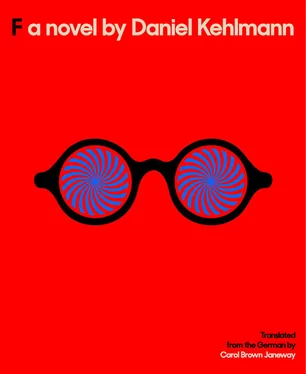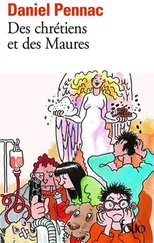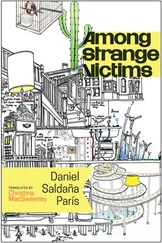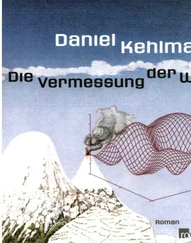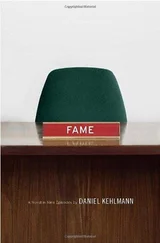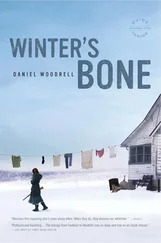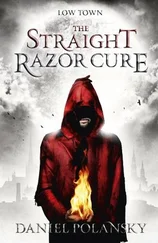In the art world it was always an open secret that Friedland owed his position not to any particular competence, but to an intimate relationship with the venerable old prince of painting. His controversial activities unsettled collectors, but kept prices within moderation. Under Eric Friedland, who was at first the provisional and then the permanent successor of his brother, this policy has changed: suddenly Eulenboeck’s paintings are appearing in every possible exhibition of this-or-that private collection: Art Forum Rottweil, the Telefonica Art Center in Madrid, the Bingen Artists’ Union, the Project Space of the City Bank in Brussels, and the Ebersfeld Savings Bank Foundation, you name it. What was once an artificial shortage of paintings has become an absolute torrent, and even articles of merchandise — or, as we say, merch —have now been sighted in museum shops: cups, sheets, tea towels, all decorated with the beloved rural landscapes of Eulenboeck’s early period. For some time now the major museums on both sides of our beloved Atlantic have been retreating from this artist. But shame on anyone who sees a possible connection between all this and Eric Friedland’s supposedly precarious business circumstances. Already there’s word on the Rialto that prices are stagnating. One does not need to wear the mantle of a prophet to guess that he who flies high may plunge to disaster — and who can feel sympathy, when the body of work, in the opinion of connoisseurs, lacks all substance and is mere gruel? But once the vagaries of momentary fashion no longer cloud our eyes, perhaps we shall be ripe for another art, a delicate, more subtle, but nonetheless courageous art, an art that no longer looks back to the past but forward to the future. It will be the Hour of the Quiet Ones, far from hype, far from hysteria, the hour — to take but one example — of Krystian Malinovski . His work is not that of a profiteer in this crisis, it overcomes it. When asked how he imagines a time when …
“But it’s all contradicting itself, isn’t it?” Marie looked up. “First he says he’s important, then he says—”
“Don’t worry about it.”
“Should I keep reading?”
“It’s enough.”
“Papa says pictures just can’t bring in the kind of money to make his debts disappear. Papa says art isn’t worth that much. But he says it still keeps the bank away. They take every cent, but they let him live as long as there’s money coming in. That’s why he’s living in the presbytery, but I’m not supposed to say that. Where do you live?”
“I travel a lot.”
“Are you still writing?”
“No.”
“Why didn’t you come before now?”
“I have things to do.”
“What kinds of things?”
“Nothing.”
“You do nothing?”
“It isn’t that easy.”
Arthur turned the car and headed for an almost empty parking lot. Big clowns’ faces made of paper and all sorts of artificial stuff grinned above an entryway, and behind them you could see the outlines of a roller coaster.
“A fair,” said Marie, disappointed. “Wonderful.”
They got out. A man was leading two boys by the hand, a woman was pushing a baby carriage, some young men were drinking out of beer bottles, and a man and woman were standing arm in arm in front of a shooting gallery.
“Why did you go away back then?” she asked.
“People will tell you life is all a matter of obligations. Maybe they’ve already told you. But it’s not always the case.”
Marie nodded. She had no idea what he meant, but she hoped he wouldn’t look at her and realize this.
“You can live without ever having a life. Without entanglements. Maybe it doesn’t make for happiness, but it takes the load off.”
“Why don’t we …?” Marie pointed to the maze. Mazes were never hard. Just keep following the right-hand wall and don’t take your eyes off the ground: provided you don’t get distracted by the mirrors, you’ll be back out in no time.
She pulled out her phone. Go figure , she typed, I’m at the fair . While Arthur was paying, she headed for the entrance. The door opened with a hum.
What the hell fair? asked Georg.
Is there a carousel? wrote Natalie.
Tell me where to come , wrote Jo.
She groped her way along the wall. A pane of glass let her see the booths and the semicircle of the Ferris wheel, and the roller coaster. A small boy was licking an ice cream cone and stared right through her as if she were invisible.
Very funny , she texted.
Not funny at all , Jo replied. I love fairs. Wish I were there too .
So where was Arthur? Okay, she’d been in this situation before, this was how it was when her father took her to the zoo. She was doing it for him, he was doing it for her, both of them would much rather have just stayed at home. She kept feeling her way along the wall, then around the corner, then around another corner, then around yet another corner, and then she should have found herself at the exit. But she wasn’t at the exit, she was standing in front of a mirror, and there was no way forward.
But we were going to go to Matthias’s birthday party , wrote Lena.
Later , she replied, and tucked the phone away, because she had to concentrate.
There was a splash of blue on the floor. She went past the mirror and around a corner, and then around yet another corner, and finally she saw the turnstile at the exit, but she was looking at it through glass, because the way was clearly leading in the opposite direction, left, then left again, back toward the entry. There was the blue splash again, and next to it a bent stick of metal, one end rounded like the head of a walking stick, and the other filed to a sharp point. She bent down. No question, the splash was the same splash. But there was no mirror in front of her; could the splash have moved? And where had the metal stick come from? So — right and then right again, and here was the blue splash once more. Something wasn’t adding up. Do it again: right, and then again right, and the blue splash was there, but now the stick of metal had disappeared. She went in the opposite direction. Left, then left again, and she was facing a wall of glass and could go no further. She turned back and reached the entrance. It was locked.
She touched it, shook it, knocked. Pointless. She knocked harder. Nothing. She banged with her fist. More nothing.
She stepped in front of the sheet of glass through which she could see the fair, and tried to wave at the man in the booth who was collecting entrance fees. But the angle was impossible — she couldn’t see him and he couldn’t see her. Maybe call Emergency? But she’d paid her entrance fee, she’d just make herself look ridiculous. She went left, then she went right, then left again and right again, then past the glass partition twice, and three times past the wall of mirrors, and then she was back looking at the splash of blue. On the other side of the glass a man went down on his knees and looked right at her. She flinched. Only then did she recognize Arthur.
She banged on the glass. He laughed and banged back: he obviously thought the whole thing was a joke. She pointed left and then right, and put her hands in the air to tell him she didn’t know how to get out. Arthur stood up and wandered out of her field of vision. Her throat tightened, and in her fury she felt the tears begin to come. Just as she was starting to call Emergency, someone tapped her on the shoulder.
“Right here,” said Arthur.
“Sorry?”
“The way out. It’s right here. In front of you. What’s wrong, why are you crying?”
It was true, the exit was just a few feet away. One turn to the left, then another to the right, and the turnstile was smack in front of her. Why hadn’t she been able to see it? She whispered that of course she hadn’t been crying at all, wiped away her tears, and ran out into the open air.
Читать дальше
